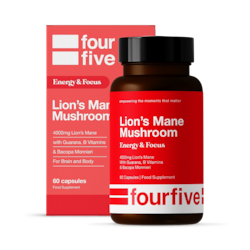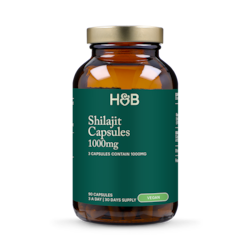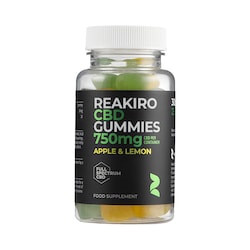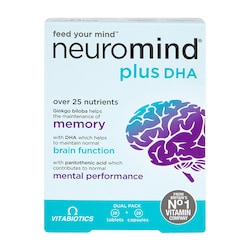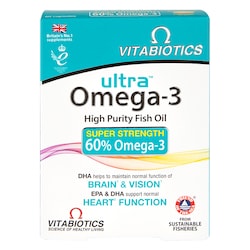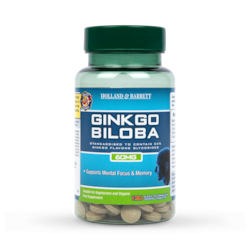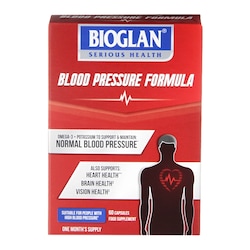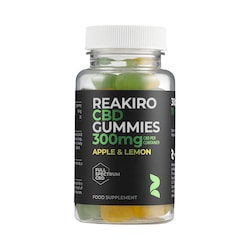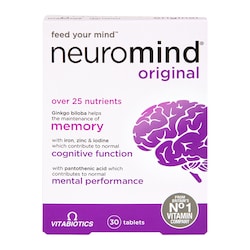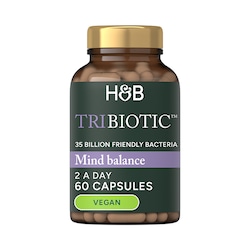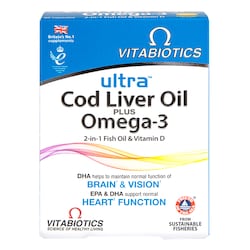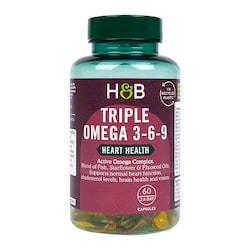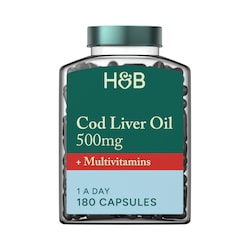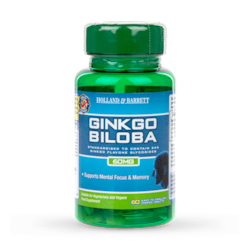20% off £30
Six simple concentration hacks

If you’ve got a big meeting looming at work, or are trying to organise a major family get-together, it pays to stay focused on the job. Try these tips to help your brain stay alert
We all have lapses in concentration from time to time. In fact, the average person is thought to lose focus after 18 minutes, according to a 2016 review published in Advances in Physiology Education.
In one study included in the review, researchers stated that the maximum attention span is just eight seconds. That’s one second less than a goldfish!1
Why have we got such short attention spans?
One reason could be that we’re a nation of multitaskers these days, such as catching up with household chores while chatting on the phone.2
Neuroscientists suggest trying to juggle too many tasks floods the brain with the stress hormones cortisol and adrenaline, putting the body on high alert and preventing clear thinking.3
The good news is our ability to concentrate is like a muscle – the more you exercise it, the stronger it becomes. Try these six tricks to improve your concentration:
-
Take timed breaks
It may seem counterintuitive to take time out when you’re on a roll, but regular brain breaks encourage better performance in the long-term, according to a 2011 study by the University of Illinois.
The researchers suggest momentarily switching off forces the brain to deactivate then reactivate, prompting better focus.4
Try the Pomodoro Technique – simply set a timer for 25 minutes and take a five-minute break when it goes off.5
Stretch your legs, put the kettle on, and repeat until your task is complete. This is called the Pomodoro Technique because the inventor originally used a timer shaped like a pomodoro tomato!6
-
Cut down on interruptions
Constant distraction is another reason why we’re all having trouble concentrating, according to experts.
Whether it’s the buzz of your mobile or the ping of an email, office workers are interrupted every 11 minutes – and it takes on average 25 minutes to immerse yourself in your task again after each disruption.7
The solution? Switch your phone to silent, manually refresh your email during set times only, and warn colleagues you’ll be unavailable for a limited time.
-
Get a dose of greenery
There’s nothing like a breath of fresh air to focus a wandering mind – and not just because it increases oxygen to the brain. In fact, even just a glance at greenery can improve concentration.
In a 2015 study by scientists at the University of Melbourne, students who had a 40-second microbreak to stare at a green garden roof fared better on a task than those who looked onto a concrete roof.
The researchers concluded that the greenery effectively ‘woke up’ the brain, extending concentration span.8
Even if you don’t have an inspiring garden to gaze upon, a houseplant could make all the difference to your brain health – a 2014 study published in the Journal of Experimental Psychology Applied, found the presence of indoor plants increased the productivity of office workers by 15%.9
-
Listen to some music
Having the radio on might be a source of distraction, but the right music can actually improve your concentration.
The American College of Radiologists reported in 2009 that radiologists who listened to classical music while working reported greater productivity and work satisfaction – a well-known phenomenon called the Mozart effect.10,11
And don’t worry, if you’re not a fan of classical music; try something more ambient instead. Research published in 2015 in The Journal of the Acoustical Society of America found sounds of nature, like flowing water, enhanced concentration by neutralising background noise.12
-
Eat for focus
It’s tempting to fuel up on sugar when you’re on a deadline, but the resulting blood sugar crash may actually slow your brain down.
This is because too much of the sweet stuff affects insulin’s ability to help our brain convert sugar into energy, which we need to think clearly.13
Instead, start the day with a hearty breakfast: a 2008 study by India’s National Institute of Nutrition found students who ate before school performed better in memory tasks and had greater concentration than those who skipped breakfast first thing.14
Make sure you eat plenty of foods rich in omega-3 fatty acids. These help form the building blocks of the brain, and are essential for learning and memory.15
The best sources of omega-3 are oily fish, like salmon and mackerel, but you can also find it in nuts, seeds, vegetable oils, tofu, oily fish and dark green leafy vegetables.16
And tuck into foods rich in the amino acid L-tyrosine too, which is thought to help improve mental performance when you’re under pressure.17
Good sources are cheese, soybeans, nuts and seeds.18
Handpicked content: 8 easy ways to cut down on sugars and sweeteners for a healthier lifestyle
-
Get a good night’s sleep
Not getting enough kip can trigger a decline in your concentration and focus. Experts from Harvard Medical School say poor sleep means your reaction time lengthens, you can’t take in new information and you become inattentive – a dangerous combination if you’re driving.19
Give yourself the best chance to nod off by following a good sleep hygiene routine:
- no screens a couple of hours before bed
- keep your bedroom cool and dark
- avoid distractions like a TV or tablet in the bedroom
- don’t eat two to three hours before sleeping
- set an alarm to start getting ready for bed
Handpicked content: 10 tips for a good night’s sleep
- Bradbury NA. Attention span during lectures: 8 seconds, 10 minutes, or more? Available from: https://www.physiology.org/doi/10.1152/advan.00109.2016
- Emma Elsworthy. Average British attention span is 14 minutes, research finds. Available from: www.independent.co.uk/news/uk/home-news/attention-span-average-british-person-tuned-in-concentration-mobile-phone-a8131156.html
- India Sturges. 7 Everyday Ways You Are Ruining Your IQ. Available from: https://www.telegraph.co.uk/health-fitness/mind/7-everyday-ways-you-are-ruining-your-iq/
- Ariga A and Lleras A. Brief and rare mental 'breaks' keep you focused: deactivation and reactivation of task goals preempt vigilance decrements. Available from: https://www.ncbi.nlm.nih.gov/pubmed/21211793
- Psychology Today. Manage procrastination with the Pomodoro Technique. Available from: https://www.psychologytoday.com/gb/blog/intrinsic-motivation-and-magical-unicorns/201307/manage-procrastination-the-pomodoro-technique
- Psychology Today. Manage procrastination with the Pomodoro Technique. Available from: https://www.psychologytoday.com/gb/blog/intrinsic-motivation-and-magical-unicorns/201307/manage-procrastination-the-pomodoro-technique
- Bob Sullivan and Hugh Thompson. Brain, Interrupted. Available from: https://www.nytimes.com/2013/05/05/opinion/sunday/a-focus-on-distraction.html
- The Conversation. Forget siestas, ‘green micro-breaks’ could boost work productivity. Available from: http://theconversation.com/forget-siestas-green-micro-breaks-could-boost-work-productivity-42356
- Nieuwenhuis M, et al. The relative benefits of green versus lean office space: three field experiments. Available from: https://www.ncbi.nlm.nih.gov/pubmed/25068481
- American College of Radiology. Baroque classical music in the reading room may improve mood and productivity. Available from: https://www.eurekalert.org/pub_releases/2009-04/arrs-bcm042309.php
- BBC Future. Does listening to Mozart really boost your brainpower? Available from: http://www.bbc.com/future/story/20130107-can-mozart-boost-brainpower
- DeLoach AG. Tuning the cognitive environment: sound masking with “natural” sounds in open-plan offices. Available from: https://asa.scitation.org/doi/abs/10.1121/1.4920363
- India Sturges. 7 Everyday Ways You Are Ruining Your IQ. Available from: https://www.telegraph.co.uk/health-fitness/mind/7-everyday-ways-you-are-ruining-your-iq/
- Gajre NS, et al. Breakfast eating habit and its influence on attention-concentration, immediate memory and school achievement. Available from: https://www.ncbi.nlm.nih.gov/pubmed/18948652
- Healthline. 11 Best Foods to Boost Your Brain and Memory. Available from: https://www.healthline.com/nutrition/11-brain-foods#section1
- Healthline. 11 Best Foods to Boost Your Brain and Memory. Available from: https://www.healthline.com/nutrition/11-brain-foods#section1
- Deijen JB, et al. Tyrosine improves cognitive performance and reduces blood pressure in cadets after one week of a combat training course. Available from: https://www.sciencedirect.com/science/article/abs/pii/S0361923098001634
- MyFoodData. High Tyrosine Foods. Available from: https://www.myfooddata.com/articles/high-tyrosine-foods.php
- Harvard Health Publishing. Sharpen thinking skills with a better night's sleep. Available from: https://www.health.harvard.edu/mind-and-mood/sharpen-thinking-skills-with-a-better-nights-sleep


